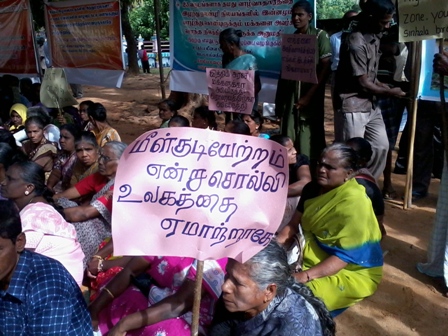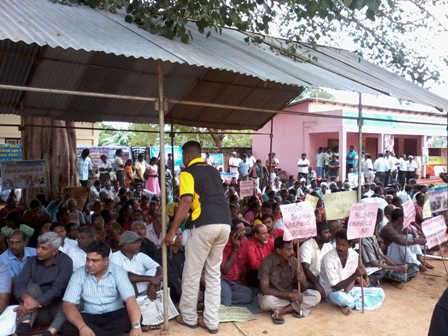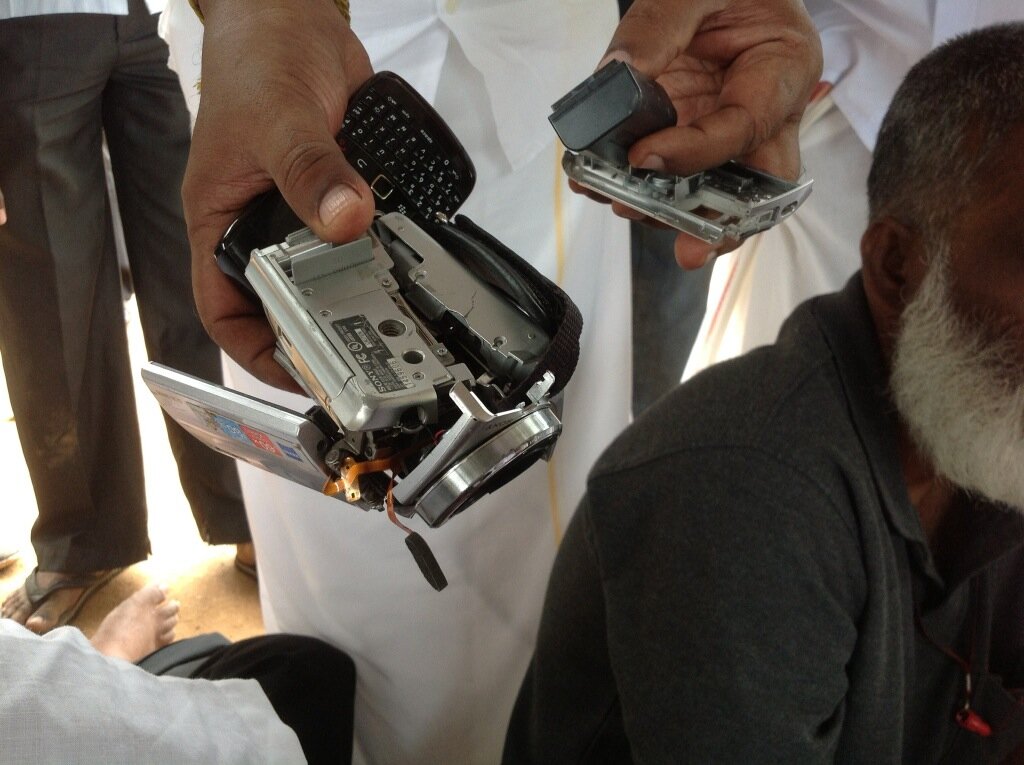SL military disrupts protest by Valikaamam IDPs
 |
|
Photograph Uthayan |
A protest by displaced Tamils from Valikaamam North was disrupted by Sri Lankan military and intelligence officers who attacked Tamil parliamentarians and journalists whilst Sri Lankan police officers gazed on.
 |
|
Photograph Uthayan |
Protesters fasted in symbolic condemnation of their forced displacement through the state's colonisation of their homes.
According to reports, officers destroyed the cameras of journalists who had been filming the attacks by the military. (See here and here).
 |
|
Photograph @GGPonnambalam |
TNPF leader, Gajendrakumar Ponnambalam, who was at the protest, tweeted:
"#lka army assaulted public who tried to hand over #MilitaryIntelligence officers disrupting the #ValiNorth protest fast. #tamil #Jaffna"
"#Lka #MilitaryIntelligence has destroyed cameras of some journalists who took pic of the army disrupting the #ValiNorth protest fast #tamil"
"Media here are informing me that goons have been stationed around the protest site to assault participants of #ValiNorthProtest #lka #Tamil"
The protest, which began at 8.30am took place in front of the Thurkkai Amman temple in Thellippalai, was attended by members of the Tamil National Alliance and Tamil National Peoples Front and Democratic Peoples Front, as well as members of the Sri Lankan opposition including the UNP leader Ranil Wickramasinghe.
The attacks by the military reportedly occurred only after Wickramasinghe had finished his speech and left.
 |
|
Photograph Uthayan |

